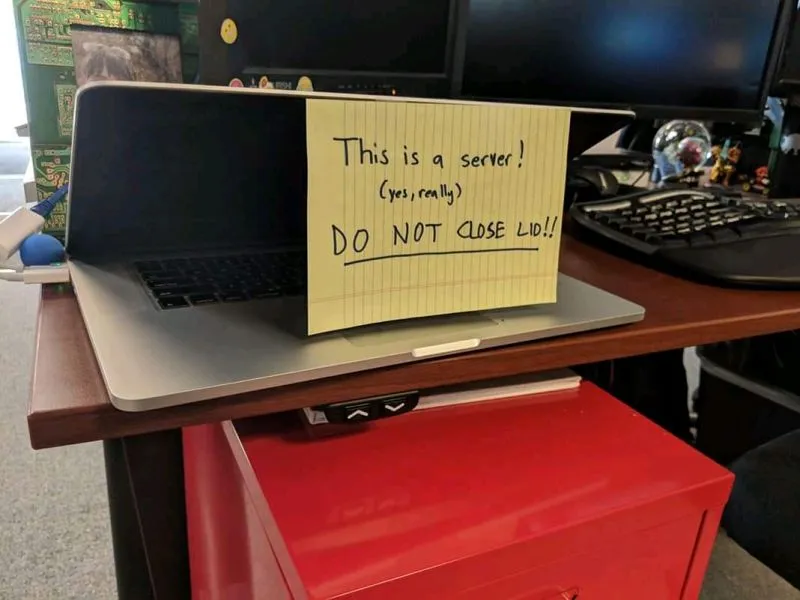- 0 Posts
- 50 Comments

Neither do .dk domains, but in order to determine use the courts will have to be involved. I haven’t heard about a lot of those cases, but I’d guess you can prove use against the person who wants to take the domain. If I have a domain called firstnamelastname.dk it’d be pretty easy to show that I got a mail address at contact@firstnamelastname.dk that’s in use.

I got one shipped to Denmark after brexit and IIRC they handled all the customs and everything.
Ninja edit: It looks like you’ll pay taxes and customs fees on top of it if you order directly, so it might be a good idea to hunt for a reseller: https://discourse.osmc.tv/t/european-orders/96161/2 - apparently I was lucky and happened to order when they were trialling IOSS

The closest I can think of is a Vero from osmc.tv but that’s breaking the 100 mark.
I’ve got the old Vero 4K model and it works like a dream in conjunction with my Jellyfin server (it’s essentially a Kodi box so you can save media on it locally too).

The Danish word “effektiv” I believe carries the meaning “not amateurishly put together” so it might be more of a grey zone leaning into illegal still. Some might after all still call a vaccine effective if it “only” prevents 95% of infections against a certain virus and has a 2% risk of certain moderate side effects.
But interesting tid bit as it’s also relevant in a Danish context. I didn’t know about it.

Law regarding fees on drives and the like: https://www.copydan-kulturplus.dk/presse/pressemeddelser/lovaendring-om-kompensation-for-privatkopiering-er-vedtaget-nye-medier-er-omfattet
The law regarding circumvention of copyright measures is part of the copyright law, more specifically §75c stk. 1 & stk. 4:
§75 c - It is not permitted to circumvent effective technological measures without the consent of the rightholder.
[…]
(4). Effective technological measures in subsections (1) and (2) shall mean any kind of effective technological measures which, in the normal course of their operation, are intended to protect works and other subject matter, etc. protected under this Act.
Stk. 2 also creates some draconian rules that basically prohibits you from creating tools that help others circumvent copyright protection.

In Denmark it is lawful copies of a media. Problem is that almost all media is copyright protected and it is illegal to circumvent that. So essentially it is a free tax for the organization that represents the artists without any checks and balances to make sure those money actually get distributed to the artists afterwards.
dba.dk is a pretty popular site for buying used stuff in Denmark, but for electronics I usually go on eBay and sort by EU only (IIRC they removed that option so now the results are tainted with lots of UK gear that’ll be hit with import taxes).
If you want to enter the energy trading market, look at Aalborg as there’s a large hub here. I know my company is on a hiring spree and are no stranger to hiring foreign people as long as it’s the best match. Some companies might also have departments in Copenhagen. As I don’t want to doxx myself I’d rather avoid naming my workplace.
But do be careful with consultancy and stay far away from Netcompany.

It depends. My native language tracker forexample opens up for signups at Christmas time every year, making it easy to join. Outside of that I believe you can just make an application and depending on how good it is, you’ll be accepted.
But this is different from tracker to tracker, so I can’t say how it is exactly for your language. But what is pretty much standard for all private trackers is that you can get an invite if you know someone already there.
Setup a reverse proxy and configure it to redirect yourdomain.org/nextcloud (or nextcloud.yourdomain.org) to a custom port that you’re now running Nextcloud on. Then configure some-random-service which you want at yourdomain.org/some-random-service to redirect to port 1234 and so on.
This means all incoming connections on port 80 and 443 now will be handled by your reverse proxy and depending on the requested URL, the reverse proxy will fetch the desired website contents from the origin web server. I personally use nginx but there exists other good reverse proxies you can use.
For personal use I’d say go with whatever and make sure your Jellyfin server has been locked down. Maybe block anything but your own country IPs as that will lower any risk of scanning. But this is pretty much not necessary for a personal instance.
If you want to share your Jellyfin it depends on how many and how much you trust those you share with. The bigger the risk, the more likely I’d be to order through Njalla and routing through a VPN or the like.
I myself just use my lastname.tld as it’s for personal use along with sharing with a few trusted friends. I do though use a ccTLD that is assigned to my country as I feel like I have a better chance at keeping my stuff secure and private.

Completely agree, I was just addressing the durability of prints as it was misrepresented in OPs comment. Burning yourself on a cast iron (or working with citrus and the like) would at most give you temporary problems with scanning the prints. But a severed finger is definitely impossible to read. For most people the problem though first occurs with aging which affects the elasticity of the skin, making prints hard to read.


I’m currently looking at onedev.io for personal and startup use but since I haven’t had an opportunity to test it out yet I can’t vouch for it. It looks cool though and seems to have a good rep.